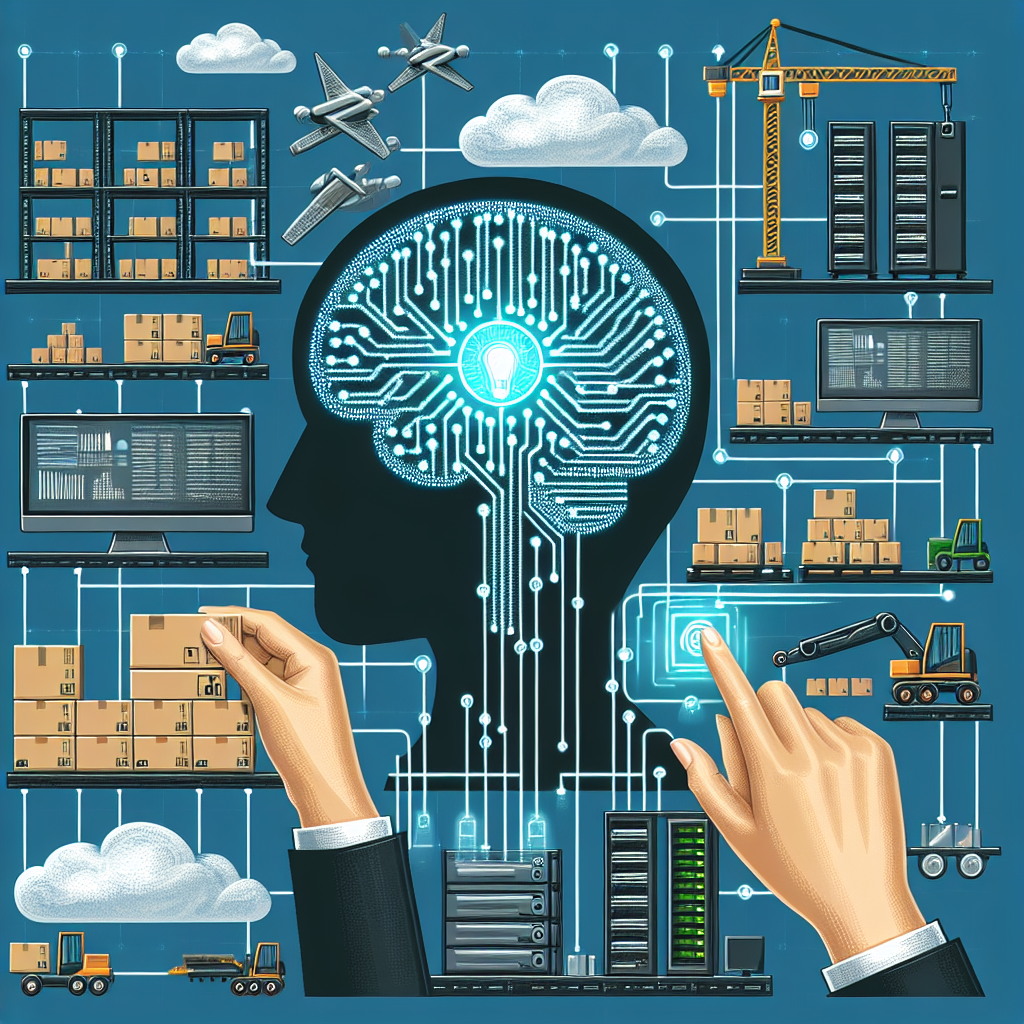In today’s fast-paced and globalized world, businesses are constantly seeking ways to improve their supply chain management processes. This is where artificial intelligence (AI) comes in, offering a range of benefits that can revolutionize the way companies manage their supply chains.
AI is a technology that enables machines to perform tasks that typically require human intelligence, such as learning, reasoning, problem-solving, and perception. When applied to supply chain management, AI can help businesses make more informed decisions, streamline operations, reduce costs, and improve customer satisfaction.
One of the key ways AI can enhance supply chain management is through predictive analytics. By analyzing vast amounts of data, AI algorithms can forecast demand, identify potential disruptions, and optimize inventory levels. This allows companies to proactively adjust their supply chain strategies to meet changing market conditions and customer needs.
Another area where AI can make a significant impact is in optimizing transportation and logistics. AI-powered algorithms can help businesses find the most efficient routes, minimize transportation costs, and reduce delivery times. This not only improves operational efficiency but also enhances customer satisfaction by ensuring timely and reliable deliveries.
AI can also facilitate better supplier management by analyzing supplier performance, identifying risks, and predicting potential issues. This helps businesses build stronger relationships with their suppliers, negotiate better terms, and ensure a more reliable supply chain.
Furthermore, AI can enhance inventory management by optimizing stock levels, reducing excess inventory, and minimizing stockouts. By accurately forecasting demand and dynamically adjusting inventory levels, businesses can reduce carrying costs, improve cash flow, and enhance overall supply chain efficiency.
In addition to these benefits, AI can also improve decision-making by providing real-time insights and recommendations based on data analysis. This allows businesses to make more informed decisions, react quickly to changing market conditions, and drive continuous improvement in their supply chain operations.
Despite the many advantages of AI in supply chain management, there are also some challenges and considerations to be aware of. These include the need for high-quality data, the potential for bias in AI algorithms, and the importance of ensuring transparency and accountability in AI-driven decision-making processes.
Overall, the potential of AI to transform supply chain management is enormous. By leveraging the power of AI technologies, businesses can gain a competitive edge, improve operational efficiency, and deliver superior customer experiences. As AI continues to evolve and mature, we can expect to see even greater innovations and advancements in supply chain management in the years to come.
FAQs:
Q: How can AI help businesses improve supply chain management?
A: AI can help businesses improve supply chain management by enabling predictive analytics, optimizing transportation and logistics, enhancing supplier management, improving inventory management, and facilitating better decision-making.
Q: What are some of the challenges of implementing AI in supply chain management?
A: Some of the challenges of implementing AI in supply chain management include the need for high-quality data, the potential for bias in AI algorithms, and the importance of ensuring transparency and accountability in AI-driven decision-making processes.
Q: What are the benefits of using AI in supply chain management?
A: The benefits of using AI in supply chain management include improved decision-making, enhanced operational efficiency, reduced costs, optimized inventory levels, and better customer satisfaction.
Q: How can businesses get started with implementing AI in their supply chain management processes?
A: Businesses can get started with implementing AI in their supply chain management processes by identifying areas where AI can add value, investing in the right technology and talent, developing a clear strategy and roadmap, and continuously monitoring and evaluating the impact of AI on their supply chain operations.

